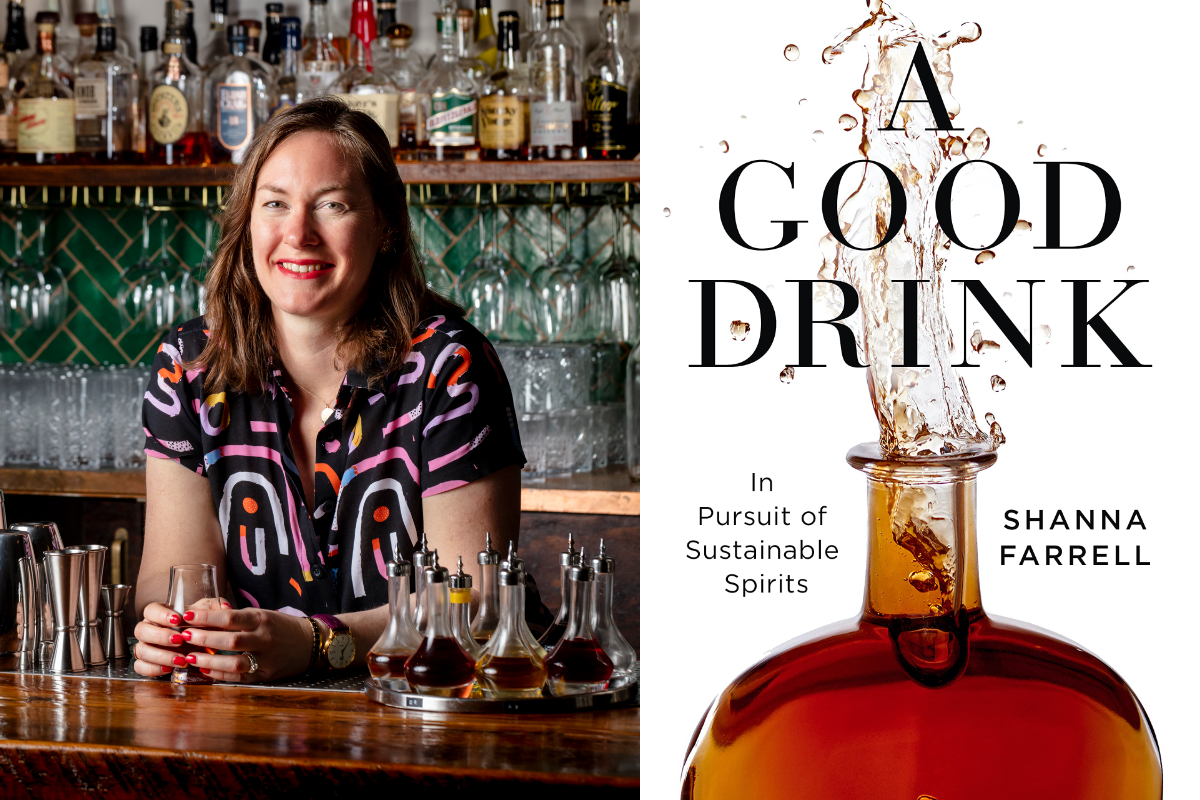Distillers are wholly disconnected from the farms that grow their ingredients—many even build their products from pre-made base spirits purchased from mass producers such as Midwest Grain Products of Indiana. Even iconic brands full of artificial ingredients like Campari and Aperol are mainstays behind the bar of restaurants that would never serve the equivalent on the plate.
The spirits industry is finally beginning to grapple with the concept of sustainability, says Farrell, a historian and interviewer at the University of California at Berkeley’s Oral History Center who specializes in cocktail and food culture and history. Efforts such as the Environmental Sustainability Working Group established in 2020 by the Distilled Spirits Council are bringing greater awareness to the ecological impact of spirits production and encouraging major players like Bacardi, Moët Hennessy, Rémy Cointreau, and Pernod Ricard to embrace innovations in energy and water use, packaging, and transportation.
Improving the sustainability of industry heavyweights with large, loyal followings, however, moves slowly. By comparison, nimble, small-scale craft distilleries have more flexibility to reduce their carbon footprint, improve the quality and taste of their spirits with family-farmed and heirloom ingredients, and rethink how their products reach consumers. Their efforts are gaining support from small spirits organizations such as the Tin Roof Drink Community and Tales of the Cocktail Foundation, which are working not just to build a greater sense of community among distilleries embracing sustainable practices but to also influence other spirits producers to do the same. The movement gradually gains momentum each year.
In her book, Farrell outlines some of the most innovative distilleries in operation, including South Carolina’s High Wire Distilling, which produces bourbon using locally grown heirloom corn, and Colorado’s Leopold Bros., where everything down to the on-site malting floor and outdoor landscaping was designed by its environmental engineer co-owner.
Civil Eats spoke with her about why distilleries are so disconnected from the farmers that produce their ingredients and how the spirits industry is slowly rolling toward a grain-to-glass spirits revolution.
Distilleries make spirits with agricultural products, but most aren’t using local or sustainably ingredients. Why?
I think there are a few reasons. There’s a disconnect between where we’re getting the ingredients for spirits, because often they are commodity crops [like corn and wheat] that we can’t see grown. There’s not really a direct relationship between distillers and farms. And because of the way spirits are regulated, distillers don’t legally have to list ingredients on their bottles. Food is regulated by the FDA (Food and Drug Administration), and spirits are regulated by the Tax and Trade Bureau (TTB). We’re not looking at a bottle of alcohol and generally thinking the same things as if we were looking at a box of pasta or sauce.
So even though spirits contain agricultural products and are consumed by drinkers, they are not considered food? Why, then, does the FDA regulate drinks like soda or juice but not spirits?
It goes back to before Prohibition to the Whiskey Rebellion [in the 1790s], which happened because there was a lot of whiskey being sold, but the government was upset it wasn’t getting the taxes. Even before Prohibition, alcohol was regulated [and taxed] by the federal government [through the TTB]. If alcohol is high enough proof, it can be sterile, so people aren’t as worried about getting sick the same way they might be about food being produced in a factory. Spirits are subject to the FDA’s Generally Recognized As Safe (GRAS) list, but they are not considered food, so there’s less of an interest in having them regulated by the FDA.
Do you think there’s a moral component to it?
Yes. The TTB regulates tobacco, alcohol, and firearms—things that have negative connotations. I think the moral component that came out of Prohibition is certainly part of it.
You note in your book that high-end bars and restaurants that would never put processed or artificial ingredients on a plate will pour mass-produced alcohol. Does this boil down to a lack of awareness about the ingredients or the absence of alternatives?
